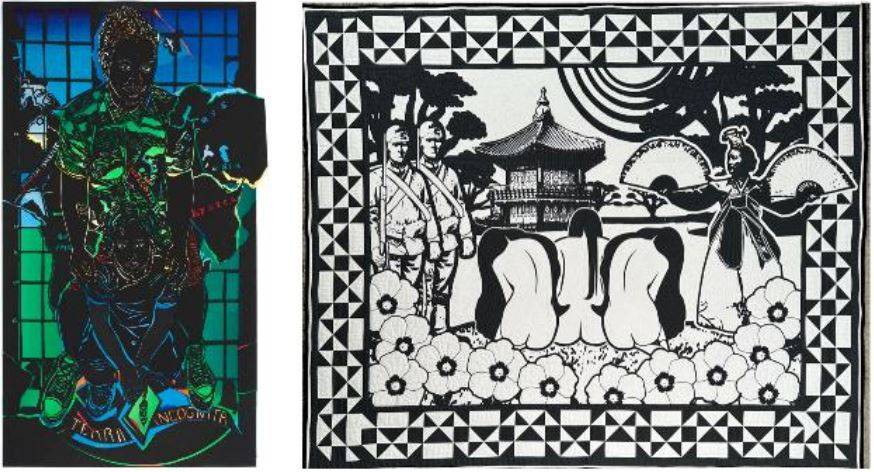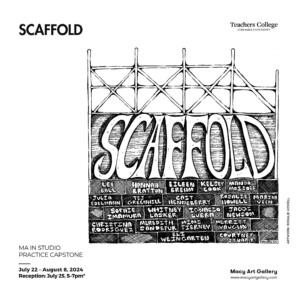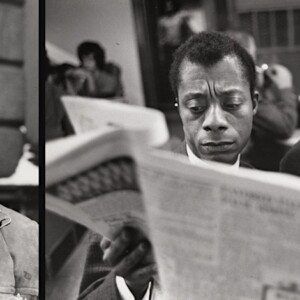
Claire Oliver Gallery Presents A Brief History of the Future – A Special Group Exhibition
A Brief History of the Future
Claire Oliver Gallery is pleased to present A Brief History of the Future, a special group exhibition of works by gallery artists BK Adams, Barbara Earl Thomas, Stan Squirewell, and Carolyn Mazloomi—who the gallery recently started representing. Expressing themselves through painting, paper cuts, glasswork, found photography, and quilting, the artists in this presentation are time benders—wielding their practices in order to explore the interdependent and evolving dimensions of past, present, and future. With their own unique variations on the choreography of reflection and anticipation, these artists prove that chronological systems of time are insufficient to address the compounding complexities of and ever-shifting revelations about identity, race, gender, family, nature, culture, and politics. Calling on ancestral, generational, and societal wisdom, this show gives equal importance to those histories we bring into focus and those futures we attempt to influence. As Octavia Butler expressed in her 1993 novel Parable of the Sower, “All that you touch / You Change / All that you change / Changes You / The only lasting truth / Is Change…” A Brief History of the Future will be on view at Claire Oliver Gallery, May 31 – August 2024.
Carolyn Mazloomi
Carolyn Mazloomi is an artist, curator, and scholar living and working in West Chester, Ohio. Mazloomi makes quilts that honor Black lives in American history and women’s lives in world history, drawing particular attention to those individuals—both well-known and unrecognized—who made significant contributions to civil rights, women’s liberation, and social justice. For Mazloomi, the image is the most essential part of her fiber work; she prints bold, black-and-white drawings onto cotton—adding applique accents—to create a panoramic, textured portrait of the hardship and endurance faced by any person invested in a fight for freedom and equality. Each textile is surrounded by a patchwork border, paying homage to the community of quilters who taught her this craft and for whom she has been a community leader throughout her life.
In Stolen Comfort, Mazloomi recounts the history of those women from Korea and the Philippines who were captured, and sex trafficked by Japan’s army during World War II. Known as “comfort women,” these prisoners of war were forced into sex slavery for Japanese soldiers. After decades of fighting for acknowledgment of these atrocities from the Japanese government, survivors only recently received recognition. For Mazloomi, these images are seminal to holding space for the histories of her race and gender—lives that are under threat of being omitted from history by the far-right politicians threatening democracy. She hopes these quilts, as objects of familiarity, warmth, and comfort, become meaningful learning tools for future generations—tapestries that ensure retrospection, retribution, and resilience.




